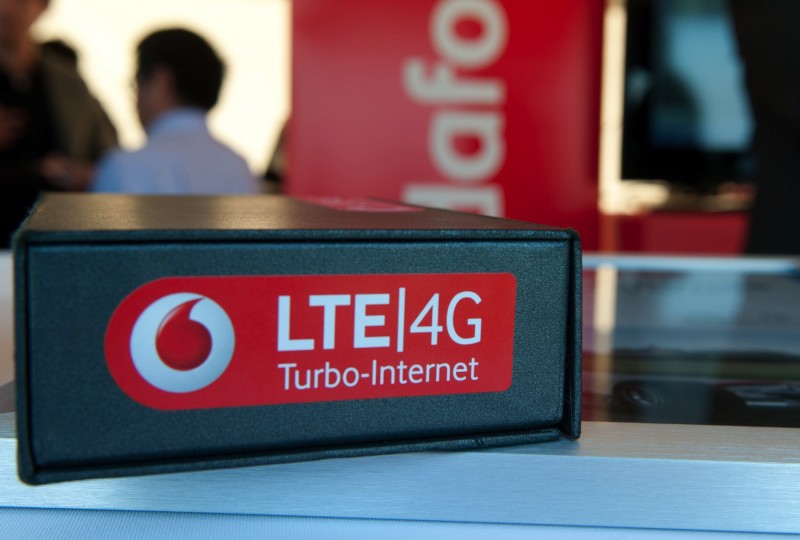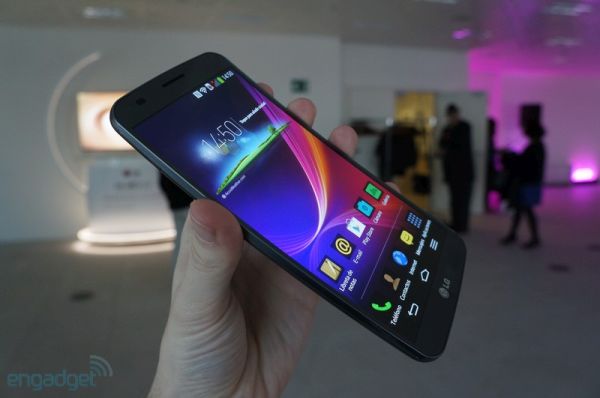Technological observatory February 17-23
The foremost mobile communication event is fast approaching. This year, the Mobile World Congress will be held on February 24, 25, 26 and 27 at the Fira in Barcelona. In addition, this year five Spanish mobile apps will compete for the best application of the year in the Mobile Premier Awards. In less than one week the Fair will open its doors with professionals like Mark Zuckerberg (the founder of Facebook) and new products such as the Samsung Galaxy 5.
The most anticipated event of this fair is no doubt the launch of new smartphones, especially the upcoming Samsung Galaxy 5, but there lots of rumors about other Samsung products, like a new version of its smartwatch. Motorola, LG, Sony, Nokia and Huawei are also eagerly awaited at the fair, but other firms have also confirmed that they will be unveiling new products. Gartner analyst Jessica Ekholm believes that one of the highlights will be 4G applications, which are expected to be a major topic at the Mobile World Congress 2014. The cellphone industry is eagerly awaiting this event, where over 1,700 companies from the sector will present their new products. LG, Nokia, Acer, Samsung, HTC and AMD are some of the brands attending the Mobile World Congress, that will also feature technologies related to sports, health and the home. In addition to Mark Zuckerberg, attendees will have the chance to listen to the founder of WhatsApp, the global chairwoman of IB, the Bitcoin chief, etc., who will no doubt have much to tell us about this industry and the steps they have taken to reach their current position.

For some months now, the leading Spanish operators have been divided into "two large factions" as a result of their different partnership agreements. On one side we have Telefónica, which has reached agreements with Yoigo and Jazztel, and on the other Orange and Vodafone, who have joined forces to stand up to their main competitor, Telefónica. Since the Telecommunications Meeting held last September, both Orange and Vodafone have expressed their disagreement with these arrangements and called on the CNMC to review the prices paid for accessing the lines and vertical infrastructure owned by Telefónica. This disagreement finally took the form of a formal complaint filed by Vodafone against Telefónica before the CNMC. Vodafone has brought a complaint against Telefónica before the CNMC (Spain's Competition and Markets Authority, the new regulator that took over the powers of the Telecommunications Market Commission), and the reason is quite serious because they claim that Telefónica is implementing a monopoly in the fiber optic market and, therefore, replicating in the next-generation networks market the dominant position (as the incumbent operator) it already enjoyed in the copper pair market. Where is this monopoly, according to Vodafone? Vodafone's complaint claims that the agreements signed by Telefónica with Jazztel and Yoigo are discriminatory against the other alternative operators, since these are operators selected by Telefónica who will benefit from access to its infrastructures. I remember quite distinctly that at the Telecommunications Meeting held in Santander both Vodafone and Orange said that Yoigo was going to offer the FTTH service without deploying any infrastructure, and this is precisely one of the aspects being denounced, together with Jazztel's "advantageous access" to Telefónica's lines (which according to Orange and Vodafone are made available at "exorbitant prices" despite the fact that they are regulated by the CNMC). Add to these two aspects Telefónica's aggressive convergent offer (by combining services), which is difficult to replicate by operators like Orange and Vodafone, and we get a good idea of the injurious situation that Vodafone is trying to convey in its complaint. Vodafone, who signed this complaint, has called on the CNMC to act by taking precautionary measures to "redress the balance" in the market and enable it to compete on "equal terms". In this regard, Vodafone is asking for access, as a wholesaler, to Telefónica's FTTH network, just as Yoigo. In this way it would be able to offer 50 Mbps and 100 Mbps in those areas which have not yet been reached by its deployment. The CNMC has also been asked to set new prices, more realistic and adapted to costs, for vertical lines, so that a scenario similar to that offered to Jazztel is made available to other operators. In addition, Vodafone wants the CNMC to admit that Telefónica is incurring malpractice and is therefore asking for measures to prevent the "inefficient deployments" that alternative operators like themselves or Orange are encountering. Telefónica's agreement with Yoigo has already been denounced before the CNMC, which was asked to provisionally invalidate the "infrastructure assignment", although this never happened. With this new complaint, competition is getting hotter in a market where FTTH services will give rise to much debate in the coming months with the commercial offerings announced by Vodafone and Orange.
March 25 is a date we should mark in red on the calendar. Why? Because HTC will showcase its upcoming flagship. Like last year, the Taiwanese company will launch its new product simultaneously in New York and London. We will then find out about its new benchmark smartphone. Over the last few weeks, a number of leaks have given us many hints of what the new smartphone will be like: a continuation of the HTC One, with minor changes to its look, but with some curious details like the fingerprint reader or a dual sensor on the back camera. The MWC will dispel the doubts as to the details of its next smartphone and HTC's strategy for this year. Will they also jump into the smartwatch market? Will we see mid-range smartphones that will truly enable them to regain the niche they have lost in recent years? HTC is running out of bullets at the same pace as its investors are losing patience. They need a change of direction once and for all to reverse a run of bad luck that continues to get worse each time the Taiwanese company reveals its financial results every three months. It seems a distant date, but it's not trivial: we should remember that next week Samsung will unveil its new top-of-the-range product. HTC is aware that the Galaxy S5 will generate much media noise and prefers to move away from the Mobile World Congress to be in the limelight later. What do you expect from the upcoming HTC smartphone?
Motorola Moto X arrives in Spain as announced a few days ago. Motorola has officially announced that it will be launched in Spain on March 1. Initially it will be available under the operators Orange and Yoigo, along with the unlocked Moto X at a price of 395 euros. In all cases it will be sold in white or black with no customization option, which is the main value for the smartphone in the United States. The prices for Orange and Yoigo have not yet been announced, although we expect both operators to release this information within a few days. Good news for Motorola, that makes the headlines once again. After the successful Moto G, the former U.S. company (now Chinese-owned) launches the second terminal of its current generation in Spain. Moto X is quite different from the Moto G, being higher-end. To many it's an expensive smartphone compared to other models on the market, that will have trouble competing with them and with the new launches expected at the MWC 2014.

Nokia is starting to heat things up with the promotion of an X, practically confirming the existence of the Nokia X (Normandy), the first Android-based device by the Finnish manufacturer that will be presented officially on Monday, February 24 at 8:30 am at the MWC 2014. The X formed by arrows is the promotional image of the official Nokia Conversations website, but this is not the only promotion of the Nokia X. Two drawings have been published today on the Nokia website on Weibo: one is a tree whose roots form a DNA image, with a green X, and the other is a pirate map with the green arrows forming another X.

Nokia would be using shades of green to promote the Nokia X, alluding to the green Android mascot. @evleak has also leaked what would be another promotional image of this new device, showing the name Nokia X in green and a composition of several green terminals. According to rumors, the Nokia X will be a very inexpensive low-end device, around 100 euros, with an FWVGA 4-inch screen (480×854 pixels), Snapdragon 200 processor, 512 MB RAM, 4 GB internal memory and 5 megapixel camera. Its operating system would be a fork based on Android 4.4.1 (KitKat) supplied without Google applications and services.
Canonical, which is responsible for the most popular Linux distribution among users, Ubuntu, has confirmed which will be the first smartphone manufacturers to launch terminals using the Ubuntu Phone operating system, which made its debut in mid-2013 and seems to be gradually attracting the interest of both manufacturers and the developer community. The first companies to sign agreements with Canonical for the production of Ubuntu smartphones are the Asian Meizu, a company that is in full swing in China selling loads of products (it is currently one of the country's largest manufacturers), and the Spanish bq, a manufacturer better known in the country for its range of low-priced Android tablets. According to the official announcement, the production of terminals with Ubuntu Phone OS would already be underway and the plans are for both Meizu and bq to launch their first models in 2014. The number of developers of well-known applications who have been attracted to the platform and created an ecosystem is remarkable. Grooveshark, VLC, 8Tracks and Euronews have confirmed their interest in Ubuntu Phone OS. This is interesting because following the monumental failure of the campaign for Ubuntu Edge, an ambitious smartphone produced directly by Canonical, it was thought that the platform would generate no interest at all. However, little by little, the community of developers, particularly those producing free software, is proving otherwise. The day Ubuntu Phone OS becomes a commercial product, a small, but significant ecosystem could already exist around it. Mark Shuttleworth, the founder and chief executive of Canonical, feels very confident about the future of his mobile operating system: For some time now, the phone industry has been looking for a real viable alternative to today's market leaders. Is there a place for Ubuntu Phone OS in the mobile market? Only time will tell, but with platforms like Firefox OS and this one that is starting from scratch to offer something new in the world of telephony, an interesting landscape will open up in the coming months, at least in terms of variety.

The curved shape of the LG G Flex once again attracts our attention, this time on the occasion of its launch in Spain. Delivering on its promise, LG has announced in Madrid that its original flexible and self-repairing phone with OLED screen will be on sale next week at price of 799 euros in the unlocked version, although it may also be bought from Vodafone (the exclusive owner for contract phones). In the early stages of the Mobile World Congress this will be the most striking addition to the South Korean firm's catalog, with different rates and contracts. Prices start at 149 euros with the Red M rate and a monthly fee of 55.36 euros, which also includes unlimited calls and 1.2 GB, although there will also be options with a somewhat lower initial payment and other monthly costs (the full breakdown is available in the gallery). The new G Flex is much more than a pretty face. Although the impressive G2 will continue to be present in all the comparative reviews and will account for a significant percentage of the revenue of LG's telephony division, this terminal is destined to become the firm's "halo" model, a cellphone to attract the attention (and also the wallets, although with other models) of consumers.
One of the top headlines of the week (yes, because there is another piece of news) is that the virtual mobile operator Pepephone will say goodbye to Vodafone's networks and switch to Yoigo. The reason for such a decision? Well, it seems to be the continuing refusal of the British operator to offer 4G support to Pepephone, which has led the virtual mobile operator to go looking for LTE in the networks of another company like Yoigo. According to La Expansión, so far no VMO has offered this service to its customers in Spain, apparently due to the opposition of the Big Three (Movistar, Vodafone and Orange) to small operators gaining access to this market. It is still not clear when the change will take place, but for a start Pepephone has filed a complaint against Vodafone for breach of contract, charging it precisely with not respecting this possibility, which was provided for in the partnership agreement. This move will also involve the change of SIM cards for all the users, although there will also be changes to the rates, with better prices that will no doubt benefit the polka-dot company. With the agreement between Pepephone and Yoigo, the VMO will enjoy exactly the same coverage as the operator, including Movistar antennas in those areas not reached by Yoigo. The general manager of Pepephone, Pedro Serrahima, could not phrase better his dissatisfaction with the situation, as reported in the source of our news item:
"For nine months, our customers have been asking us every single day for 4G, and our contract says we should have it. As we always explain everything we do, we can explain to a customer why we are not embarking on a traumatic and very costly process in exchange for offering them what they expect from us. What we cannot do is explain to that customer that we are sitting back and doing nothing, without knowing until when and waiting for somebody to fulfill the terms of a contract when failing to fulfill it is more beneficial than fulfilling it [...] It is worrying that nine months after the launch no virtual mobile operator in Spain has access to 4G and I think that they were expecting that no one would move a finger and let time go by and simply complain."
Obviously, Vodafone has not kept quiet and has also offered its version of this matter, pointing out that its relationship with Pepephone has always been very warm and that the reason for not offering 4G yet is due to "a series of technical, commercial and business model complexities". This being the case, future developments will no doubt be very interesting.

And the other bombshell is that Facebook has confirmed the acquisition of WhatsApp for the hefty sum of 16 billion dollars. The transaction would involve 12 billion dollars in Facebook shares and 4 billion dollars in cash, as well as including an additional payment of 3 billion dollars in shares to WhatsApp employees and founders. A totally unexpected purchase that goes to prove two things: the financial might of Facebook and its interest in gaining a foothold in the mobile telephony market. WhatsApp is the strongest and most popular application on the instant messaging market. Today it boasts the mind-boggling amount of 50,000 million messages sent daily via the platform. In the case of Facebook, it can also boast about its nearly 1.3 billion users. We can say that two giants have joined forces for one single purpose: to boost Facebook in the cellphone industry; with WhatsApp, the social network gains incredible strength in the world of instant messaging. Finally, Jan Koum, the founder and CEO of WhatsApp, will now hold a position on the board of directors of Facebook. After announcing the purchase, Zuckerberg offered his customary conference to investors explaining some of the reasons and purposes for paying the hefty sum of 16 billion dollars for "an app", but not just any app. What investors wanted to know is how Facebook will raise this money, and Zuckerberg's answer was clear and concise:
Our main strategy for the next few years is to grow and connect the world. Afterward, when we have one, two or three billion users, we'll think about monetizing.
Thus, WhatsApp will neither include advertising nor merge with Facebook Messenger (at least there are no plans for this). The news of the acquisition of WhatsApp by Facebook almost immediately brings to mind the purchase of Instagram, also by Facebook. The social network's goal is very clear and the presence of Mark Zuckerberg, its chairman and chief executive, at the MWC 2014 (where he will even give a conference) clearly shows that Facebook is going for broke in the telephony market. Since 2013, social networks have put a great deal of effort into positioning themselves among the users of mobile devices. Twitter, especially, achieved this over the years, and even though Facebook seems to have been left a bit behind in this aspect, its top management has already realized this mistake and reached for the checkbook to tackle it. Instagram and WhastApp are two huge acquisitions, not only in terms of cost (especially the 16 billion paid for the latter), but because of their weight in the market. We are talking about the most widely used messaging platform in the world, responsible for the "death" of traditional SMS, and which neither Line nor Viber or any other has been able to dethrone since it became the leader, notwithstanding some of its failures. We do not know what the future holds for the Facebook Messenger application, but while we wait for the U.S. chamber of commerce to approve the final purchase, we will pay full attention to what Zuckerberg says in a few days in Barcelona. Facebook has great plans for the mobile telephony sector.
